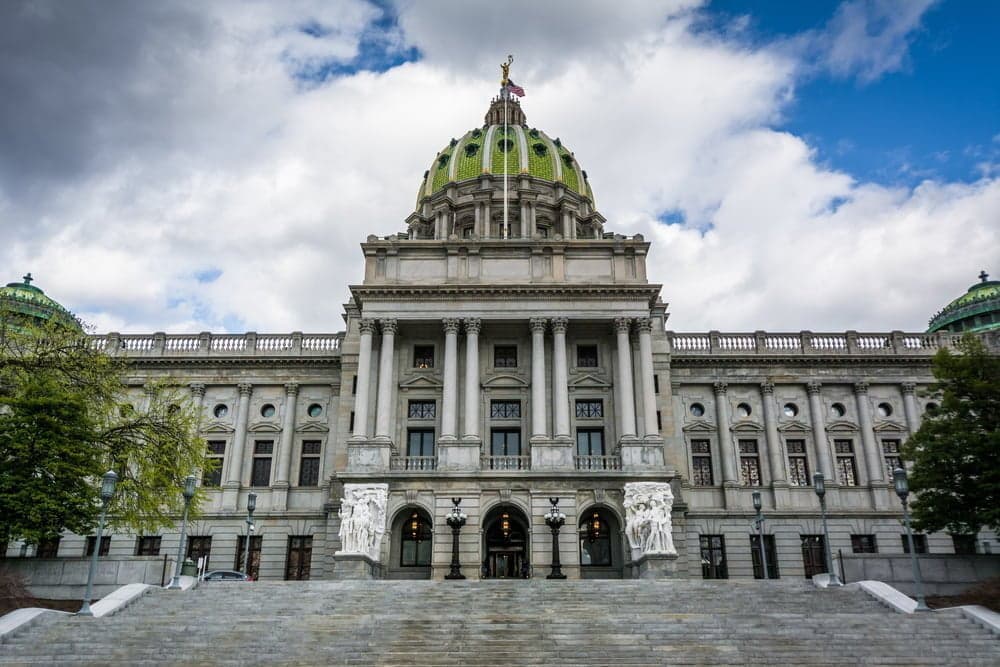With a whopping $1.75 billion in missed July and August education payments to public school districts throughout Pennsylvania, legislators continue to grapple over passing a budget that would allow public school districts to fund programs, resources and maintain staffing levels for the start of the 2025-2026 school year.
Pennsylvania State Education Association [PSEA] President Aaron Chapin, PSEA Southern Region president-elect Jimbo Lamb, and Lancaster Education Association President Christina Rojas urged elected officials at a press conference Tuesday to adopt a common sense “real” budget now and fund public school districts without tying the legislation to funnel public tax dollars to private religious schools and cyber charter schools.
One issue the PSEA leaders pointed to is state Senate President Pro Tempore Kim Ward’s admission on an August 5 radio show that she won’t move the budget forward unless lawmakers agree to send millions of tax dollars to private and religious schools.
Lamb said Ward, a proponent of school vouchers, would “siphon off money to cyber and religious schools” ultimately costing taxpayers more and jeopardizing students with the most need for resources and services.
Chapin said the state had missed roughly $1.75 billion in payments to public school districts for July and August.
READ: Pennsylvania’s Budget Impasse Causes Funding Headaches for Public School Administrators
“I’m calling on every state senator and representative to do the right thing,” as roughly 90% of K-12 “students attend public schools,” Chapin said.
Chris Kaufman, a Pennridge School District school board member said the budget impasse “threatens the stability of schools across Pennsylvania, particularly for our most vulnerable students.”
“While not every solution will bring relief, the legislature needs to consider adopting HB 1500 to bring financial fairness to cyber charter school funding. This alone will provide every district in the state financial relief,” Kaufman said in an email.
Pennsylvania House Bill 1500 aims to reform cyber and charter school funding by establishing a flat fee of $8,000 instead of the current system in which public school districts pay their “per student” education rate – which varies widely. When students leave their public school districts to attend a cyber charter education provider, the “money” follows the student.
READ: With No Final State Budget, Bucks County Public School Districts Must Take Funding Leap of Faith
The proposed bill adjusts special education costs to reflect the actual cyber charter expenses needed to meet them and limits funds cyber charter schools can keep in “unassigned” categories to 12% of their operational budgets – which reflects the same restrictions public schools must follow.
Funding data for all public school districts across Pennsylvania may be found here.
“One way we help keep taxes down is by investing our tax proceeds. August is when we begin to generate this income. If we don’t receive the proper funds from the state that has been budgeted, this will decrease our investment opportunities,” Nicole Kahn, a Council Rock School Board member and parent said in an email.
While Rojas doesn’t object to private or charter schools, she said families who opt to pull their kids from public school districts and send them to private, religious or charter schools “should pay for it themselves.”
“We don’t have time to wait. It’s time to put real students inside real classrooms. Public schools are here for everyone. Our students are not bargaining chips” in a state budget process, Rojas said.






